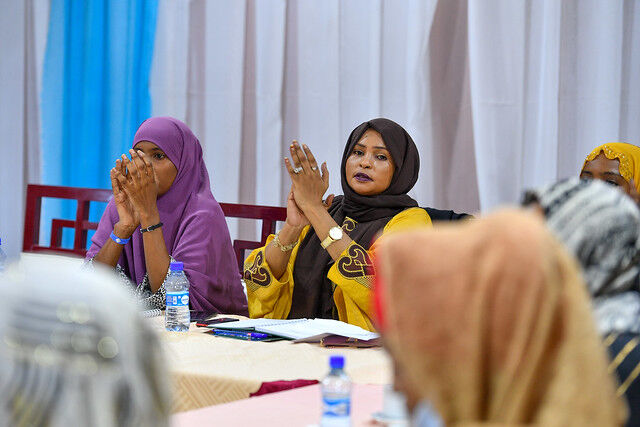“We have been neglected and denied our rights for far too long,” said Achol Nyibong, a women’s representative from Malakal, Upper Nile state, South Sudan.
“Our ability to take decisions or hold leadership positions—whether in our government or local institutions or even among our communities—is negligible in comparison to men,” she added.
Achol’s words led to applause and ululations from her peers at a two-day roundtable discussion jointly organized by the United Nations Mission in South Sudan (UNMISS), the UN Population Fund (UNFPA) and the Gender Unit of the IMC Women’s Desk
“When women across South Sudan were given 35 per cent representation under the Revitalized Peace Agreement, we were extremely optimistic,” continued Achol. However, the reality that we are experiencing belies that hope. Women have been given positions that are far below par and do not match their high qualifications. Additionally, we have fallen far short of the promised number of positions—there are only two female ministers and one female advisor among 15 male counterparts,” she revealed.
With just 12 months remaining for the transitional period to come to an end, there is a pressing need to infuse fresh momentum into the peace process across South Sudan, including constitution making and preparations for eventual elections.
Women’s full and equal participation in such key deliberations and decisions is needed now more than ever.
According to participants there are two areas which could significantly empower women: Stopping underage or forced marriages and enabling women to own property.
Cabinet Affairs Minister, David Nyang, agreed with this recommendation.
“On behalf of the state government, I pledge to direct all efforts towards safeguarding the rights of women, especially when it comes to property and land ownership as well as leases. If women are economically independent, they will be more motivated in fully participating in the life of our nation,” averred Minister Nyang.
“When conflict erupted across South Sudan in 2013, women and girls were severely impacted. Now, with a peace deal and a transitional government of national unity in place, it is incumbent upon us to do everything we can to support women and girls so that our country can progress towards an inclusive peace,” he added.
The forum closed with participants coming up with recommended solutions that would enable women to harness their potential as peacemakers, social transformers and leaders. An important aspect: Ensuring legal spaces specifically for women to access justice mechanisms.
In conclusion, Leda Limann, Head of the UNMISS Field Office in Malakal appreciated the candid feedback from these discussions. “For us as a UN Peacekeeping mission, it is very important to get a sense of the situation on the ground from all of you. The free and frank discussions today have been illuminating; we will do everything within our power and mandate to ensure that equal rights for and representation of women and girls is given the priority that it deserves,” she stated.


